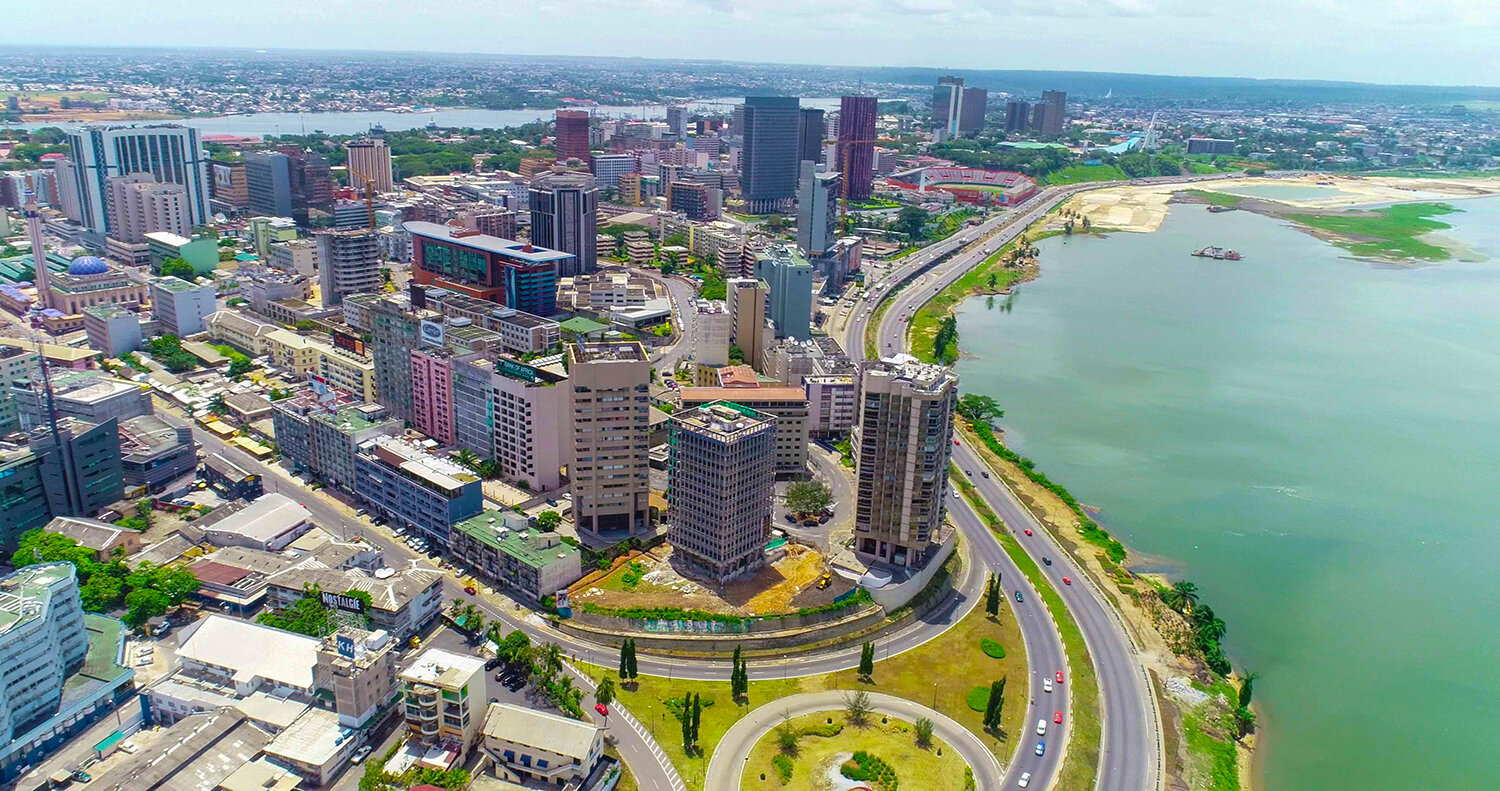Ivory Coast, officially known as Côte d’Ivoire, is a West African country celebrated for its vibrant culture, rich history, and diverse landscapes. Situated along the Gulf of Guinea, this nation boasts a unique blend of traditional and modern influences, making it a fascinating destination for travelers. With its capital city, Yamoussoukro, and economic capital, Abidjan, Ivory Coast offers a dynamic urban experience while showcasing the beauty of its natural resources, including lush rainforests and stunning beaches.
Table of Contents
Geography
Ivory Coast is located in West Africa, bordered by Ghana to the east, Burkina Faso to the north, Mali to the northwest, and Guinea to the west. It has a coastline stretching approximately 515 kilometers along the Gulf of Guinea, providing access to beautiful beaches and vibrant coastal towns. The country covers an area of about 322,463 square kilometers, making it the 68th largest country in the world.
The geography of Ivory Coast is diverse, with a mix of coastal plains, savannahs, and mountainous regions. The country is home to several prominent rivers, including the Bandama and Sassandra, which flow through lush landscapes. The eastern region features the Tai National Park, a UNESCO World Heritage site known for its dense rainforests and rich biodiversity.
Ivory Coast experiences a tropical climate, with a wet season from May to October and a dry season from November to April. The climate supports a variety of ecosystems, making it an ideal habitat for diverse flora and fauna.
States of Ivory Coast
Ivory Coast, also known as Côte d’Ivoire, is divided into 14 administrative regions, which are further subdivided into 31 districts. The districts serve as the first-level administrative divisions, and the regions are the second-level divisions. The country does not have states, but these districts and regions function similarly to states in other countries.
| No. | Region | Districts |
|---|---|---|
| 1 | Abidjan | Abidjan, Anyama, Bingerville |
| 2 | Bas-Sassandra | San Pedro, Sassandra, Tabou |
| 3 | Comoé | Abengourou, Aboisso, Bondoukou |
| 4 | Denguélé | Boundiali, Korhogo, Man |
| 5 | Gôh-Djiboua | Gagnoa, Daloa, Oumé |
| 6 | Lacs | Yamoussoukro, Tiassalé |
| 7 | Lagunes | Abidjan, Anyama |
| 8 | Marahoué | Daloa, Zuénoula |
| 9 | Moyen-Cavally | Duékoué, Guiglo, Bloléquin |
| 10 | Savanes | Korhogo, Ferkessédougou, Tengréla |
| 11 | Vallée du Bandama | Bouaké, Tanda, Mankono |
| 12 | Worodougou | Séguela, Kaniasso |
| 13 | Yamoussoukro | Yamoussoukro |
| 14 | Zanzan | Bondoukou, Bouna, Tanda |
History
The history of Ivory Coast is marked by its rich cultural heritage and the impact of colonialism. The region was initially inhabited by various ethnic groups, including the Akan, Krou, and Mandé peoples, each contributing to the country’s cultural mosaic. In the late 15th century, European explorers arrived, leading to the establishment of trade routes and the eventual colonization of the region.
In the late 19th century, Ivory Coast became a French protectorate, and in 1893, it was officially declared a French colony. During the colonial period, the French exploited the country’s resources, leading to social and economic changes. The struggle for independence gained momentum after World War II, with various nationalist movements emerging.
On August 7, 1960, Ivory Coast gained independence from France, with Félix Houphouët-Boigny becoming the country’s first president. Under his leadership, the country experienced relative stability and economic growth, primarily driven by agriculture. However, political tensions and ethnic divisions emerged after Houphouët-Boigny’s death in 1993, leading to a series of political crises and civil wars in the 2000s.
Top Ten Must-Visit Destinations
1. Abidjan
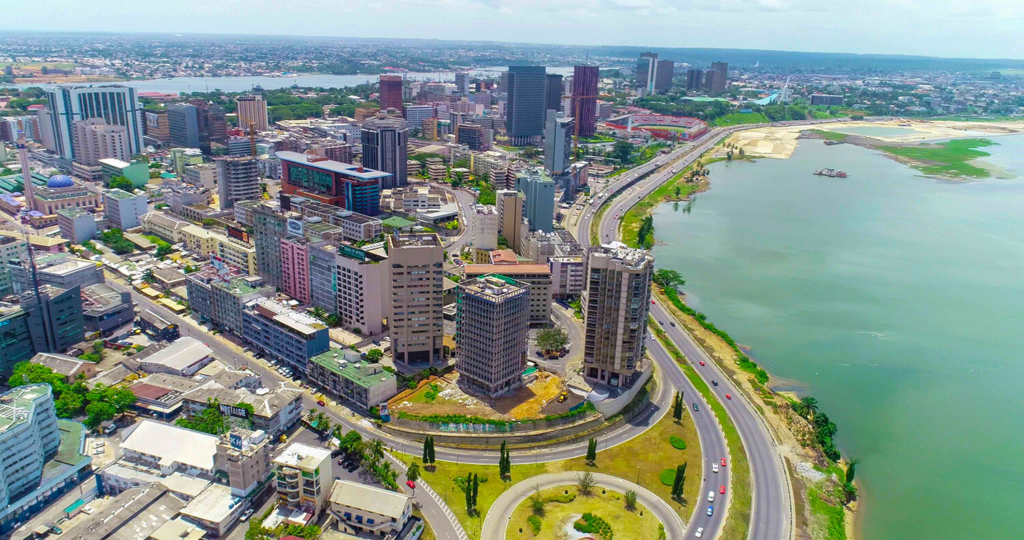
Abidjan, the economic capital of Ivory Coast, is a bustling metropolis known for its vibrant culture and modern architecture. Visitors can explore attractions such as the St. Paul’s Cathedral, the Palais de la Culture, and the lively Plateau district. The city also offers beautiful beaches along the coast, providing a perfect spot for relaxation and entertainment.
2. Yamoussoukro
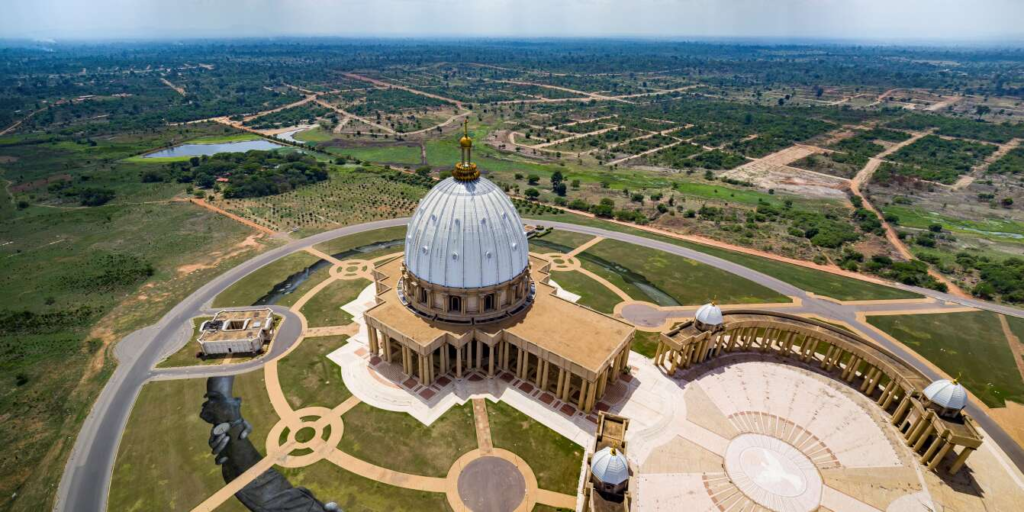
Yamoussoukro is the political capital of Ivory Coast and home to the impressive Basilique Notre-Dame de la Paix, one of the largest churches in the world. The city is characterized by its unique architecture and tranquil atmosphere. Visitors can explore the Crocodile Lake, where hundreds of Nile crocodiles reside, offering a fascinating wildlife experience.
3. Tai National Park
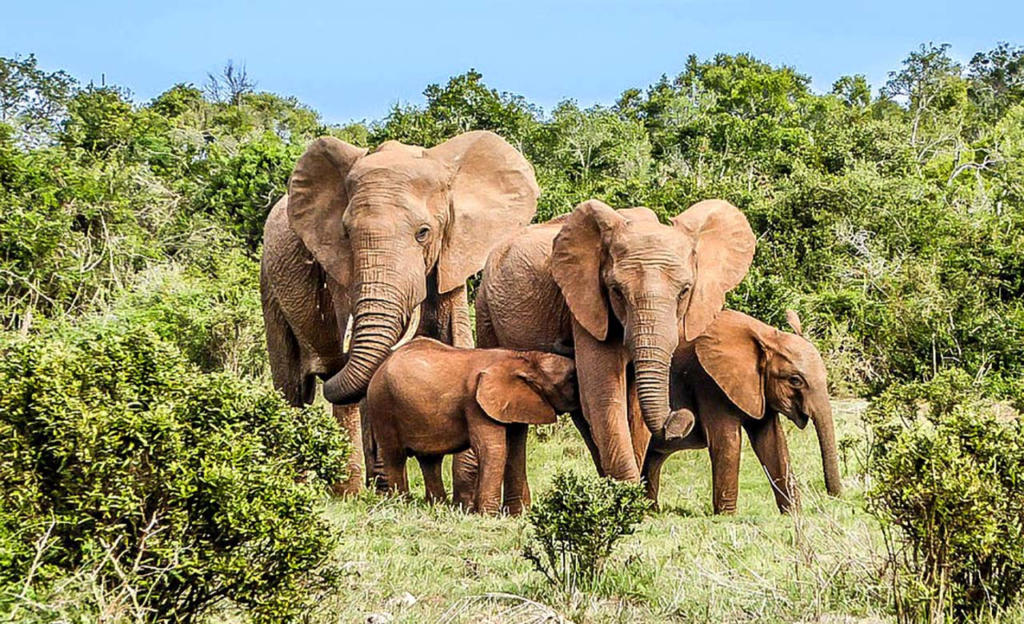
Tai National Park is a UNESCO World Heritage site and one of the last remaining rainforests in West Africa. The park is home to diverse wildlife, including chimpanzees, forest elephants, and numerous bird species. Visitors can embark on guided tours to explore the lush landscapes and witness the rich biodiversity of the region.
4. Grand Bassam
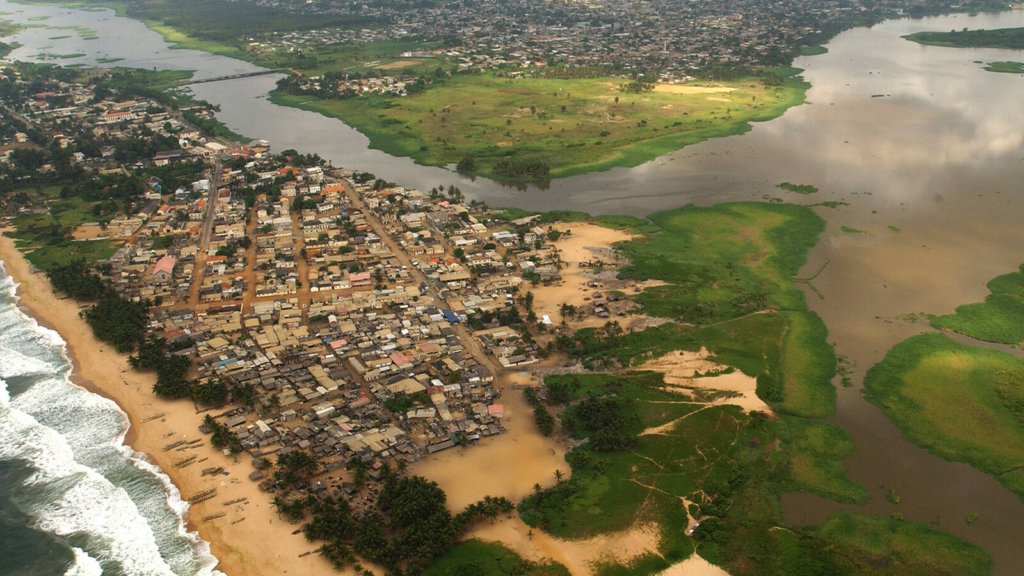
Grand Bassam is a charming coastal town known for its historical significance and beautiful beaches. Once the capital of Ivory Coast during the French colonial period, the town features colonial architecture, including the Old Town and the National Costume Museum. Visitors can relax on the sandy beaches and enjoy the vibrant local culture.
5. Bouaké
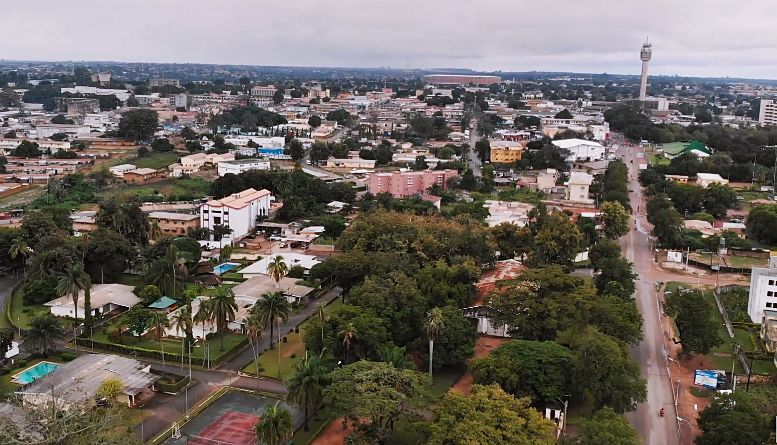
Bouaké is the second-largest city in Ivory Coast and serves as a cultural hub for the country’s diverse ethnic groups. Visitors can explore the bustling markets, enjoy traditional cuisine, and experience local festivals. The city is surrounded by scenic landscapes, providing opportunities for outdoor activities and cultural immersion.
6. San Pedro
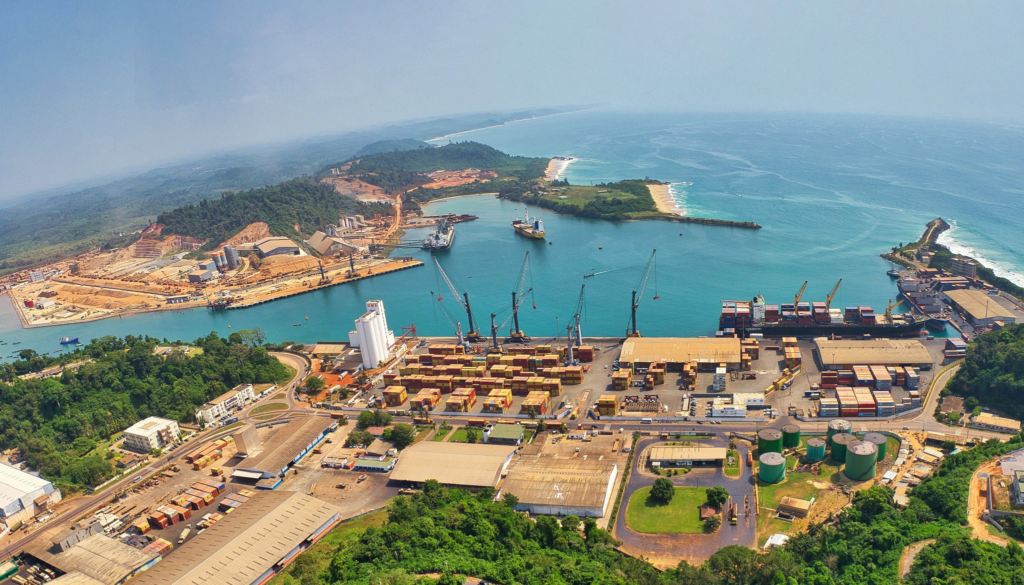
San Pedro is a vibrant port city known for its beautiful beaches and thriving fishing industry. The city offers a laid-back atmosphere, with opportunities for water sports such as surfing and snorkeling. Visitors can explore the local markets and indulge in fresh seafood while enjoying the coastal scenery.
7. Mount Nimba
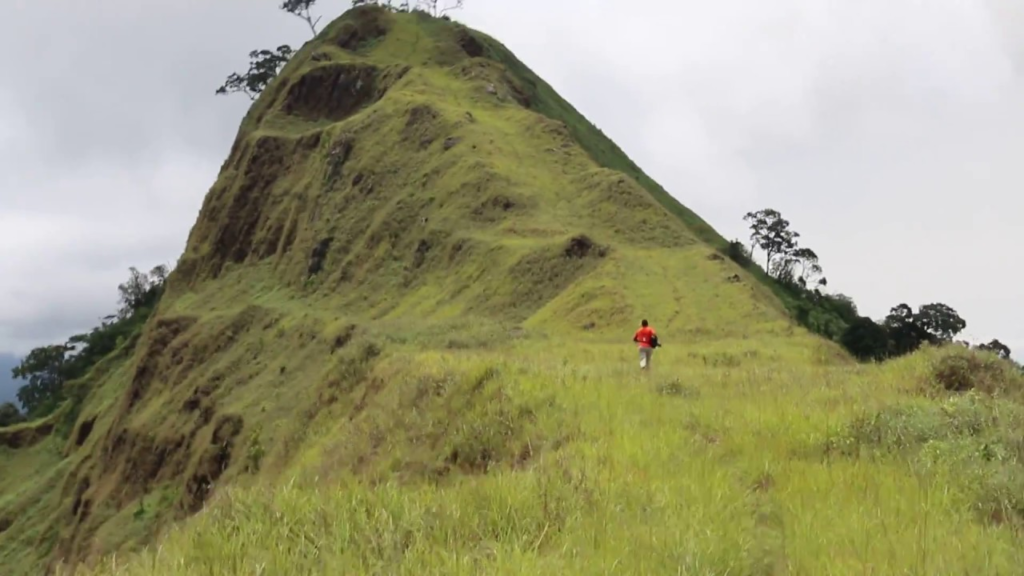
Mount Nimba is a UNESCO World Heritage site located along the border between Ivory Coast and Guinea. The mountain is known for its unique flora and fauna, including several endemic species. Hiking trails lead to stunning viewpoints, offering panoramic views of the surrounding landscapes.
8. Man
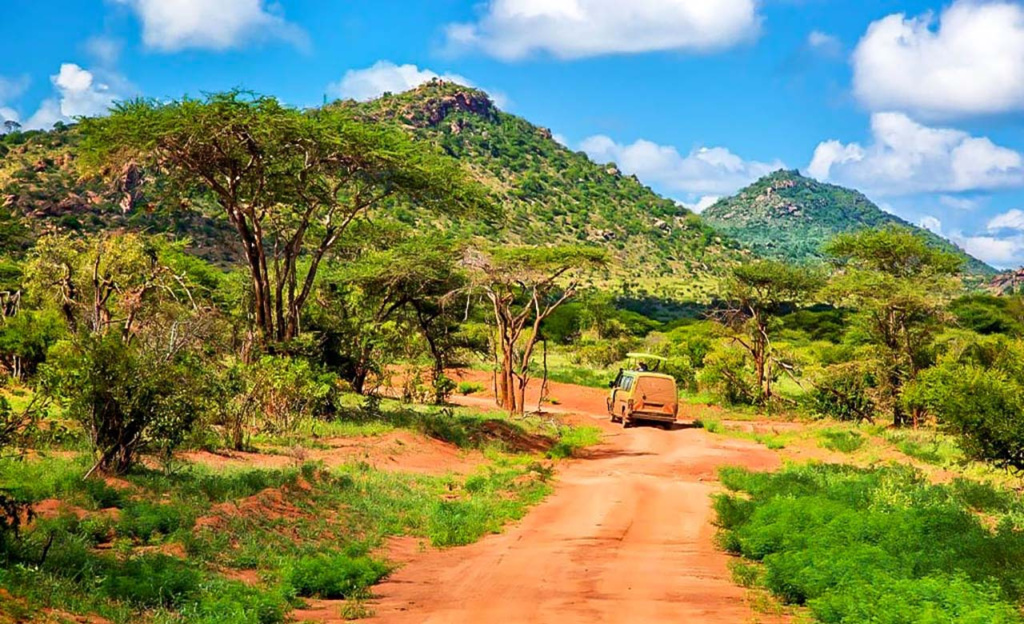
Man is a picturesque town located in the western region of Ivory Coast, surrounded by lush mountains and waterfalls. The La Dent de Man peak is a popular hiking destination, offering breathtaking views of the surrounding valleys. Visitors can also explore the nearby waterfalls, such as the Cascades de la Guitry, and experience the local culture.
9. Komoé National Park
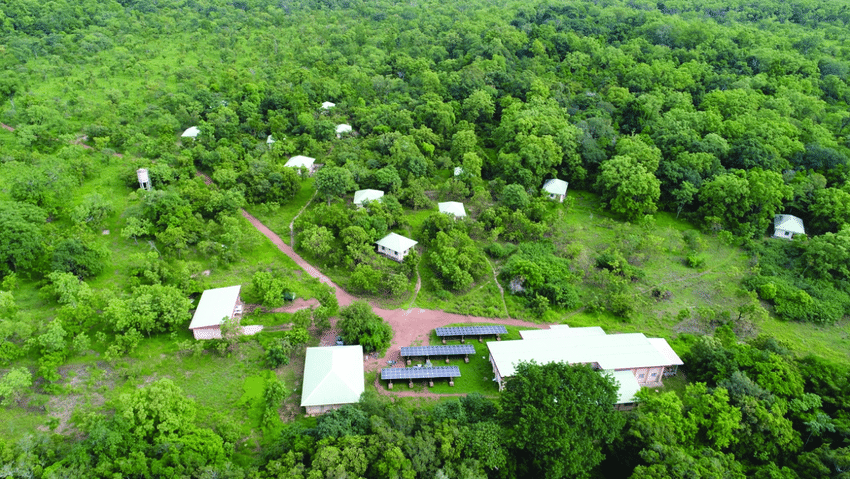
Komoé National Park is one of the largest national parks in Ivory Coast and is home to a variety of wildlife, including elephants, antelopes, and numerous bird species. The park offers opportunities for safaris and nature walks, allowing visitors to connect with the country’s rich biodiversity.
10. Assinie-Mafia

Assinie-Mafia is a beautiful beach destination located along the coast, known for its stunning beaches and water activities. Visitors can enjoy relaxation by the sea, partake in water sports, and explore the local fishing villages. The vibrant nightlife and seafood restaurants make it a popular getaway.
Culture
Ivory Coast is a melting pot of cultures, with over 60 ethnic groups contributing to its rich heritage. The largest ethnic groups include the Akan, Krou, and Mandé peoples, each with its own unique traditions, languages, and customs. French is the official language, but numerous indigenous languages, such as Baoulé, Bété, and Dioula, are widely spoken throughout the country.
Traditional music and dance play a vital role in Ivorian culture. The country is known for its lively music scene, with genres such as zouglou and coupé-décalé gaining popularity. Traditional instruments, including the balafon and djembe, are often used in performances, showcasing the vibrant spirit of the nation. Festivals and celebrations frequently feature music and dance, bringing communities together in joyful gatherings.
Artisan craftsmanship is also highly valued in Ivory Coast. Traditional crafts, such as weaving, pottery, and wood carving, reflect the country’s cultural identity. The production of intricate textiles, such as kente cloth, showcases the skill and creativity of local artisans. Markets across the country are filled with colorful crafts, providing visitors with opportunities to take home unique souvenirs.
Festivals
Ivory Coast hosts a variety of festivals that celebrate its rich cultural heritage and traditions. One of the most significant festivals is the Fêtes des Masques, celebrated in various regions, where traditional masks are paraded and showcased in vibrant ceremonies. This festival highlights the importance of masks in Ivorian culture and their connection to ancestral spirits.
The Abidjan International Carnival is another important celebration, featuring colorful parades, music, and dance performances. This event attracts participants and spectators from across the country and beyond, creating a lively atmosphere that showcases the diverse cultures of Ivory Coast.
The N’Zassa Festival is celebrated by the Akan people, showcasing traditional music, dance, and rituals. This festival emphasizes the importance of community and cultural heritage, providing a platform for the younger generation to connect with their roots.
Economy
Ivory Coast has a diverse economy, primarily driven by agriculture, manufacturing, and services. The country is one of the world’s largest producers and exporters of cocoa and cashew nuts, contributing significantly to its GDP. Agriculture employs a substantial portion of the population, with farmers cultivating crops such as coffee, palm oil, and rice.
In recent years, the government has focused on diversifying the economy and attracting foreign investment. The manufacturing sector has also seen growth, with industries such as food processing and textiles gaining prominence. Despite facing challenges such as political instability and fluctuations in global commodity prices, Ivory Coast remains one of the fastest-growing economies in Africa.
Cuisine
Ivorian cuisine is a delicious blend of flavors and ingredients, influenced by the country’s diverse cultures. Rice is a staple food, often served with various sauces and stews. Attiéké, a dish made from fermented cassava, is a popular side served with grilled fish or meat, reflecting the coastal culinary traditions.
Foutou, a starchy dish made from yams or plantains, is often enjoyed with rich sauces, such as groundnut or tomato sauce. The cuisine also features a variety of fruits, including tropical varieties like mangoes and pineapples, adding freshness to the meals.
Communal dining is a common practice in Ivory Coast, with families gathering around the table to share food and engage in conversation. The emphasis on communal meals reflects the cultural values of togetherness and hospitality.
Top Eight Most Famous Food
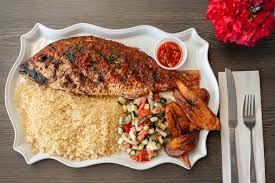
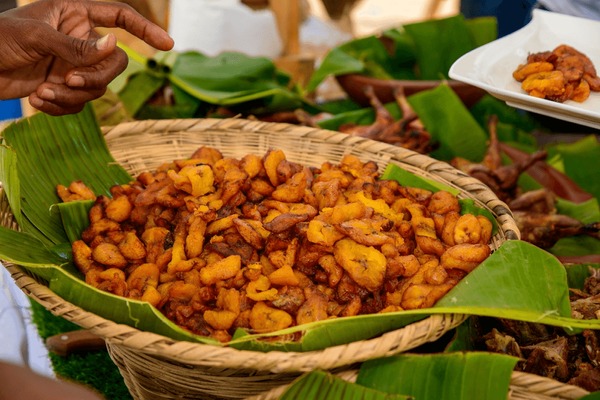
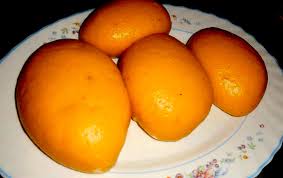

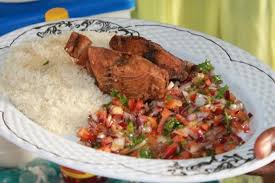
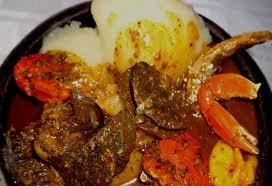
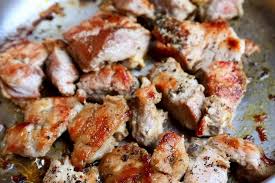
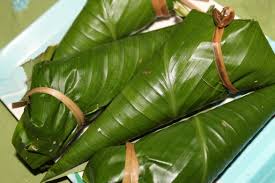
Interesting Facts
- Ivory Coast is the world’s largest producer of cocoa beans.
- The country has over 60 ethnic groups, each with its own unique culture.
- The Basilique Notre-Dame de la Paix in Yamoussoukro is one of the largest churches in the world.
- The Fêtes des Masques festival features traditional masks and vibrant ceremonies.
- Ivory Coast gained independence from France on August 7, 1960.
- The country is known for its beautiful beaches along the Gulf of Guinea.
- Traditional music genres like zouglou and coupé-décalé are popular in the country.
- Ivory Coast has a tropical climate with distinct wet and dry seasons.
- The country is home to several UNESCO World Heritage sites, including Tai National Park.
- Ivory Coast has a rich culinary tradition, featuring dishes made from cassava, yams, and rice.
Conclusion
Ivory Coast is a captivating destination that offers a rich tapestry of culture, history, and natural beauty. From its bustling cities and stunning landscapes to its delicious cuisine and vibrant festivals, Ivory Coast invites travelers to explore its unique offerings. Whether you’re wandering through the streets of Abidjan, relaxing on the beautiful beaches, or immersing yourself in local traditions, Ivory Coast promises an unforgettable experience filled with warmth and hospitality.

